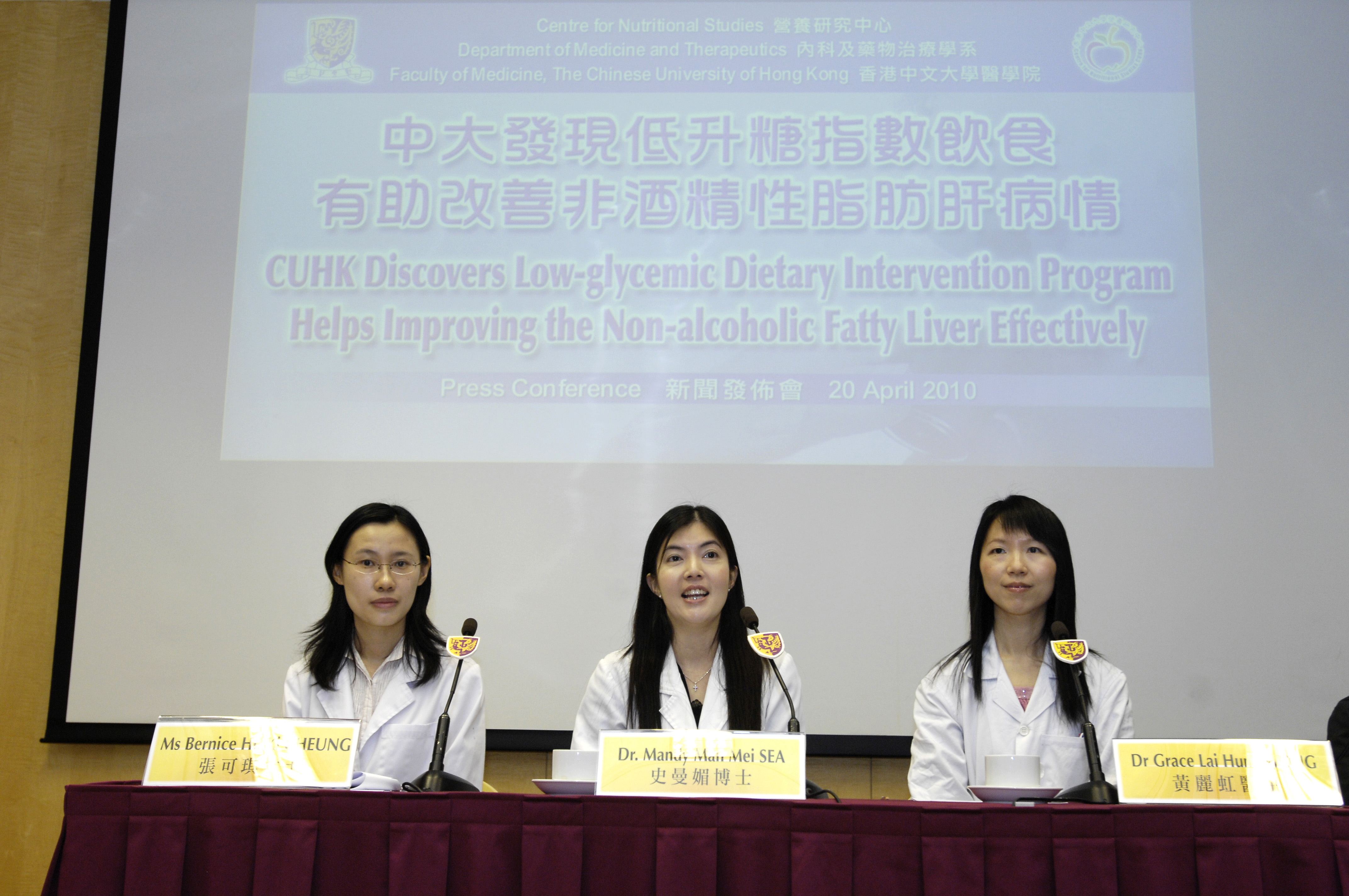CUHK
News Centre
CUHK Discovers Low-glycemic Dietary Intervention Programme Helps Improve Non-alcoholic Fatty Liver Effectively
Non-alcoholic fatty liver disease (NAFLD) is a common chronic liver disease. It affects around 20% of the population in affluent countries. As NAFLD is a slient disease with few or no symptoms, uncontrolled fatty liver can be worsen progressively to liver scarring. In addition, NAFLD most often occurs in persons who are overweight and have 1 or more metabolic syndrome risks such as diabetes, high blood pressure, high blood lipid and obesity. Without any treatment, these can lead to serious complications. Therefore, it is important to control NAFLD and to mininize metbolic syndrome risks.
Currently, there is no specific drug treatment for fatty liver. According to recent reports, NAFLD can be associated to glucose intolerance and diabetes. Thus, the Centre for Nutritional Studies and the Department of Medicine and Therapeutics at The Chinese University of Hong Kong (CUHK) jointly collaborated to investigate the efficacy of a low-glyceamic dietary intervention programme and intensive lifestyle modification programme (LMP) in NAFLD patients. The study was conducted in 2009.
Low-glycemic dietary intervention programme includes encouraging patients to have low- glycemic diet, and to modify their lifestyle to a healthy one. Low-glycemic diet is a diet composed with low-glycemic foods, like oatmeal bread, brown rice, red rice and oat, etc. Such a diet has a little effect on blood glucose level and thus, it lowers insulin secretion and may improve fatty liver. Moreover, intensive lifestyle modification programme (LMP) aims to help patients differentiate food in low and high glycemic index categories, and to help them adopt a lifelong healthy lifestyle in order to reduce the metabolic risk factors. LMP is a healthy weight loss programme established by the Centre for Nutritional Studies and its efficacy has been clinically proved. It aims to help people to lose weight and stay at a healthy weight level, as well as to enhance their dietary, nutritional and health knowledge through individualized tailor-made lifestyle counseling.
The preliminary results of the study are encouraging. Among the 21 patients who had completed the study, 18 patients are obese. All of them (100%) were significantly reduced in both body weight, body fat and waist circumference; 14 patients have high blood pressure and 12 (85.7%) of them have significantly improved their blood pressure; 4 out of 5 patients (80.0%) who have hyperlipidemia showed great improvement in their blood lipid level; 8 patients with hypercholesterolemia and 6 (75.0%) of them have a significant drop in the cholesterol reading. Overall, all patients showed an improvement in metabolic syndrome risks (including fasting glucose) and liver functions after the study.
CUHK concludes low-glycemic dietary intervention programme may help minimise the metabolic risk factors among NAFLD patients, and their fatty liver may also be improved or even reversed.
(From left) Ms Bernice Ho Ki CHEUNG, Registered Dietician, Centre for Nutritional Studies, Faculty of Medicine, CUHK; Dr Mandy Man Mei SEA, Center Manager, Centre for Nutritional Studies, Faculty of Medicine, CUHK and Dr Grace Lai Hung WONG, Honorary Clin







